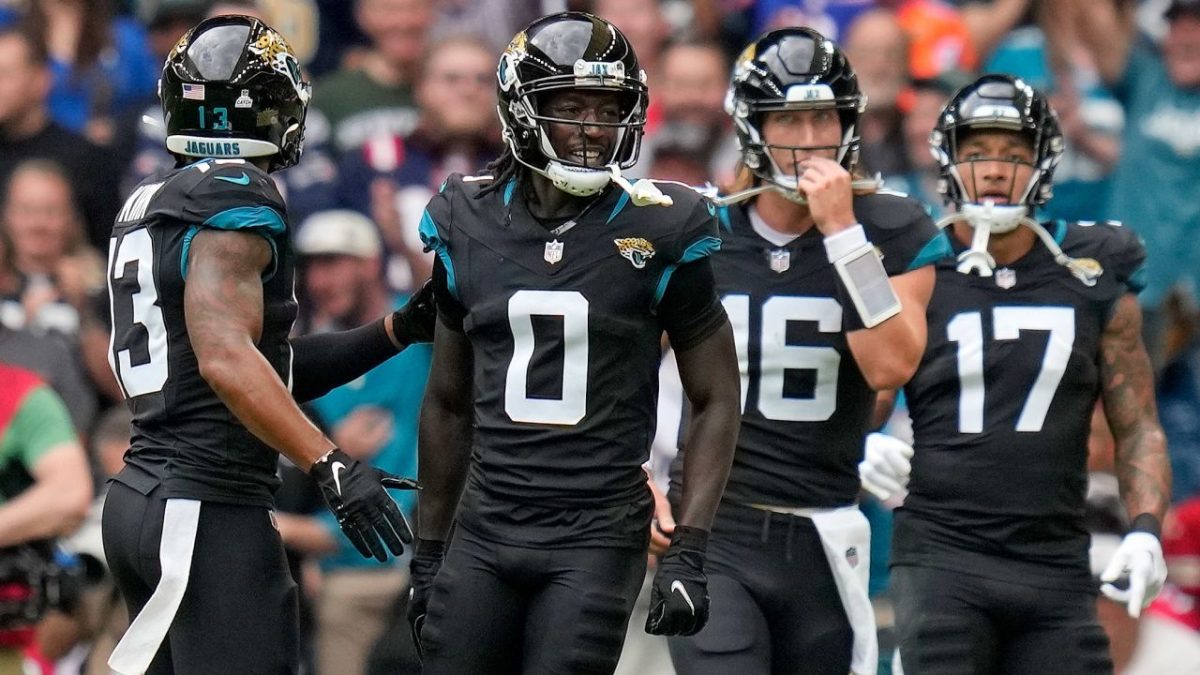Given the increased number of international games the NFL has had this season, it makes you wonder what the future looks like for the international presence of professional football.
The NFL played its first international game all the way back in 2005, in Mexico City’s Estadio Azteca. The Cardinals defeated the 49ers 31-14, and the game set the NFL’s attendance record up to that point. Since then, the NFL has played at least one international game per year, usually in Mexico City or London, with Munich recently added to the rotation and Frankfurt getting its first game this year. But how exactly is the NFL perceived elsewhere?
The Jacksonville Jaguars are no strangers to London, having played a total of 11 games there since 2013, including back-to-back this year. Team owner Shahid Khan signed a contract in 2012 to play four games in London, and the contract was extended through 2020 later on. But why? Well, Khan owns Fulham FC, a British soccer team, that also plays in London (although not at Wembley). The Jaguars also have a British fan base that is just as large as, if not bigger, than their American one. As of right now, as the City of Jacksonville and taxpayers argue about funding for a new stadium, rumors are circulating about the Jaguars potentially moving to London. But that is just a theory for the time being. However, the Jaguars are not the only team with a large international following.
The Arizona Cardinals, as well as the San Francisco 49ers, both have large followings in Mexico. Both teams have played each other in Mexico City multiple times. However, unlike the Jaguars, both teams have large enough fan bases in the US, as well as a lack of stadium controversy, so a potential move for either team to Mexico City, or anywhere else for that matter, is more unlikely than the McQuaid lunch line not bunching up outside the cafeteria.
While it may seem to be a coincidence that the Jaguars almost always play in London or the Cardinals and Niners almost always play in Mexico City, it is not. The NFL is essentially using these teams as guinea pigs to try and see how a team that always plays in a certain foreign city does in terms of fandom. The fact that Jaguars games in London come close to selling out every time provides the top brass of the league with valuable information about how a potential expansion team would perform financially.
As for future international games, the NFL has more or less a clean slate. Some have speculated games in Canada as a test to see if Canadian expansion teams would be feasible. However, if such an expansion were to occur, Toronto, Montreal and Vancouver would likely be the only cities, as hockey is still king in the north. Some have theorized a continuation of European games, in cities such as Paris, Rome or even Barcelona.
However, there are some truly wild card picks for future international games, including cities such as Sydney, Rio de Janeiro, Buenos Aires, Tokyo and even Beijing. While these seem even more unlikely, with the Super Bowl routinely pulling nine-digit viewer numbers every year, it makes you wonder how the international landscape of the NFL will look in the future. Some have even speculated that the big game might be played in London one year. One thing is for sure: as the world continues to connect digitally, the NFL will certainly take advantage of it, making aspects of the game, such as where games are played, better than ever before. [Ed. Note—They could always bring back the ÑFL.]
One interesting theory is a return of NFL Europe. Founded in 1989 and beginning play in 1991, the European sideshow to the NFL was a plain and simple failure. After just two seasons, in 1993, the league suspended operations and returned in 1995 with just six teams. Six teams would remain until the league folded. (In 2004 the Scottish Claymores were replaced with the Hamburg Sea Devils, but the total stayed at six.) The league’s players, who at one point included Kurt Warner, were mostly players who went undrafted and then unsigned by teams on this side of the pond. Not having access to the same resources as the NFL “America,” NFL Europe provided Europeans, who were already devoted to soccer (and, to a lesser extent, rugby), with a highly inferior on-field product. Toward the end of its lowly existence, NFL Europe was draining the global NFL organization of roughly $30 million every year. Between the massive annual losses and the looming recession, the league was canned in 2007, and the NFL decided to focus more on hosting international games rather than an entire adjacent international league. However, as this league failed miserably, this seems unlikely, and if new teams were to be added in Europe, they would most likely be a part of the NFL rather than another league.
